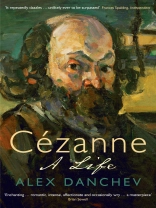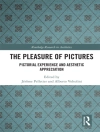Today we view Cézanne as a monumental figure, but during his lifetime (1839-1906), many did not understand him or his work. With brilliant insight, drawing on a vast range of primary sources, Alex Danchev tells the story of an artist who was never accepted into the official Salon: he was considered a revolutionary at best and a barbarian at worst, whose paintings were unfinished, distorted and strange. His work sold to no one outside his immediate circle until his late thirties, and he maintained that 'to paint from nature is not to copy an object; it is to represent its sensations’ – a belief way ahead of his time, with stunning implications that became the obsession of many other artists and writers, from Matisse and Braque to Rilke and Gertrude Stein.
Beginning with the restless teenager from Aix who was best friends with Emile Zola at school, Danchev carries us through the trials of a painter tormented by self-doubt, who always remained an outsider, both of society and the bustle of the art world. Cézanne: A life delivers not only the fascinating days and years of the visionary who would 'astonish Paris with an apple’, with interludes analysing his self-portraits, but also a complete assessment of Cézanne’s ongoing influence through artistic imaginations in our own time. He is, as this life shows, a cultural icon comparable to Monet or Toulouse.
O autorze
Alex Danchev was Professor of International Relations at the University of St Andrews. His books Cézanne: A Life (2012) won the Apollo Book of the Year Award in 2013, jointly with his translation of The Letters of Paul Cézanne (2013). He was also the author of a number of other internationally acclaimed biographies, and two influential collections of essays, On Art and War and Terror (2009) and On Good and Evil and the Grey Zone (2015); and editor of the best-selling 100 Artists’ Manifestos (2011).












